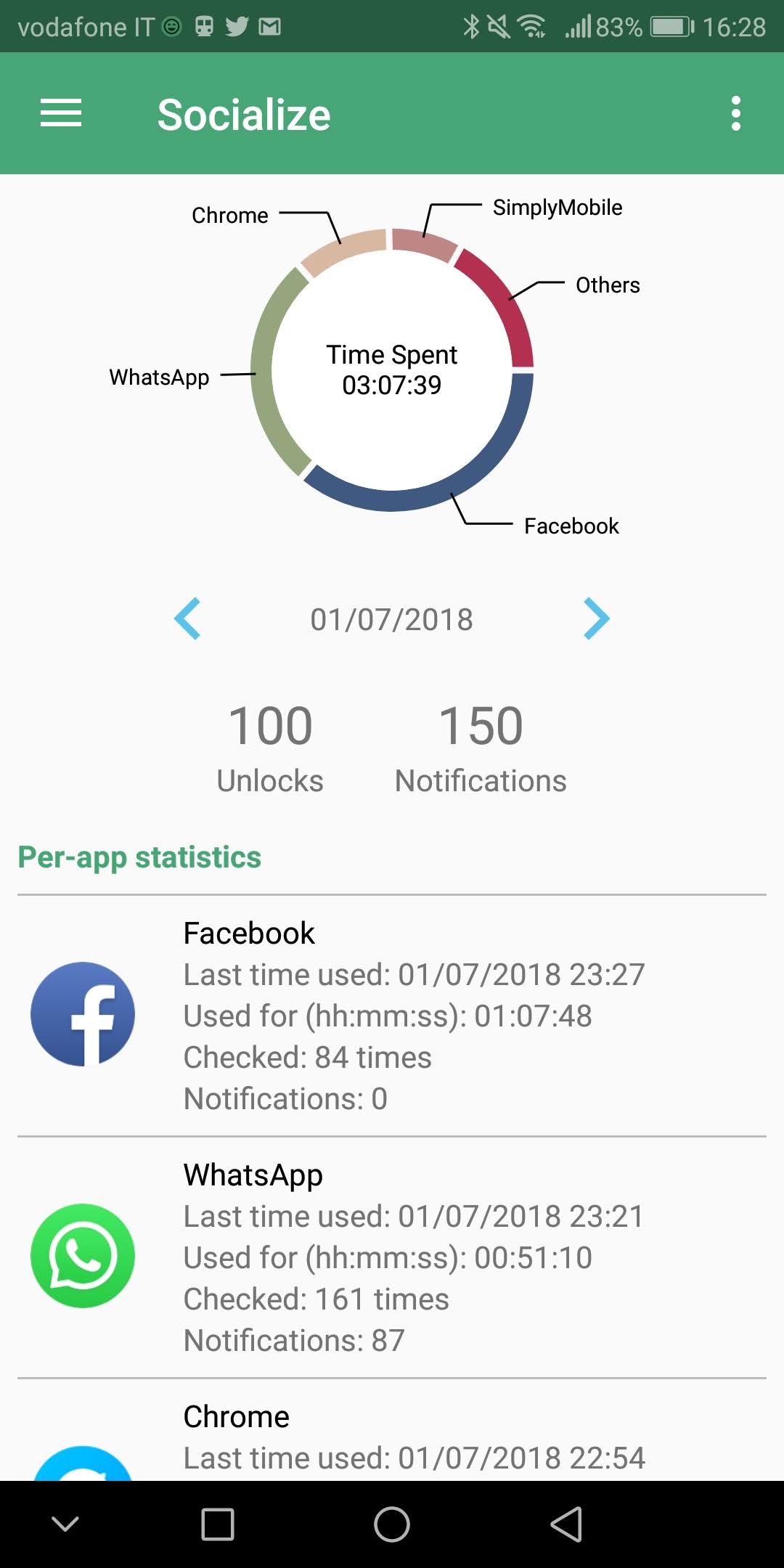Digital Wellbeing
Active, since 2019

Smartphones have become an integral part of our daily lives. Through smartphones, users can nowadays perform many different tasks such as browsing the web, reading emails, and using social networks. As smartphone use increases dramatically, however, so do studies about the negative impact of overusing technology. Smartphones, in particular, have been found to be a source of distraction, and their excessive use can be a problem for mental health and social interaction.
Many different mobile apps for breaking “smartphone addiction” and achieving “digital wellbeing” are available. However, it is still not clear whether and how such solutions work. Which functionality do they have? Are they effective and appreciated? Do they have a relevant impact on users’ behavior? In our research, we aim at providing the first overall perspective of existing mobile apps for changing users’ behavior with smartphone.
For this purpose, we first conducted a functionality review of the 42 most popular digital wellbeing apps available in the Google Play Store, by highlighting which features are more common, and how such apps support a more conscious use of technology. Then, we extracted 1,128 reviews left by users for these 42 apps, and we conducted a thematic analysis to gain insight about the users’ experience with digital wellbeing apps and their features. Finally, we designed and implemented Socialize, our own digital wellbeing app, by integrating the most common digital wellbeing features extracted during our functionality review. We conducted a three-week in-the wild study of Socialize with 38 participants. Our aim was to gain a quantitative insight into the findings stemming from the first 2 qualitative studies, thus assessing whether the features that contemporary digital wellbeing solutions share are effective for changing behavior and promoting a more conscious use of the smartphone.
These are the most interesting results extracted from the studies:
- Contemporary digital wellbeing apps are mainly focused on supporting self-monitoring, i.e., tracking user’s behavior and receiving feedback, but are not grounded in habit formation nor social support literature. Habit formation, in particular, could play an important role in digital wellbeing apps, supporting behavior change towards a more conscious use of technology, and ensuring the long-term effects of the new behavior.
- Contemporary digital wellbeing apps are liked by users and useful for some specific use cases, but they are not sufficient for effectively changing users’ behavior with smartphones. By using self-monitoring functionality, in particular, such apps are effective for temporary breaking some unhealthy behaviors, e.g., the excessive use of social networks, but they fail in other circumstances. For example, by offering functionality that can be easily bypassed, they do not prevent users from constantly checking their devices.
- Promising areas to go beyond self monitoring techniques include the design of digital wellbeing apps that support the formation of new habits and promote self regulation through social support
The source code of Socialize is freely available at the following link: https://git.elite.polito.it/public-projects/socialize-v1
If you are interested, you can also download the collected data and the resulting codebooks:
Check out the paper for additional details!
Publications
Monge Roffarello Alberto, De Russis Luigi. 2019. The Race Towards Digital Wellbeing: Issues and Opportunities. In Proceedings of the 2019 CHI Conference on Human Factors in Computing Systems, ISBN: 978-1-4503-5970-2, DOI: https://doi.org/10.1145/3290605.3300616